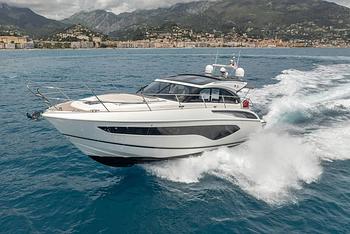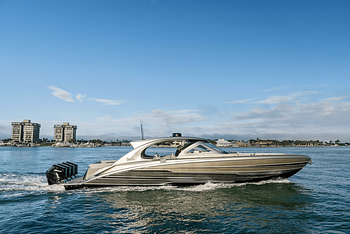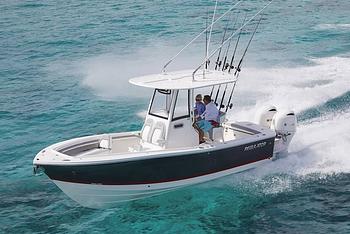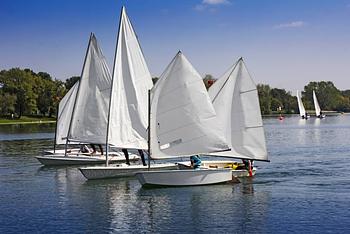The discussion of whether aluminum or fiberglass is best for boat building tends to focus on smaller vessels, where these two highly versatile materials battle it out, each with some impressive advantages. Across different manufacturing methods, costs, uses, and benefits, there is much to be said about each type. Here we take a look at the advantages of each and which is best for particular styles of small boat.
Advantages of Aluminum Boats
Aluminum is widely used for manufacturing small boats. There are many advantages to aluminum over fiberglass, as we’ll see below, namely its lightweight character, its inexpensiveness, and its ease of maintenance. Aluminum uses traditional construction methods of riveting or welding to create a robust hull, and all its additional features such as livewells, seat banks, and helm stations are added the same way. In addition, aluminum boats have these values:
- Lightweight and Easy to Launch. This is probably aluminum’s top advantage, as boats built from it often weigh considerably less than fiberglass ones of the same size and style. Being lightweight has several advantages for small boats; they need smaller engines to power them and are therefore cheaper to buy and run, they are easier to launch and tow with a smaller vehicle, and if they get stuck in reeds, mud or on sand banks they can more easily be moved.
- Cost Effective. Widely available and relatively cheap, aluminum allows manufacturers to build affordable small boats with smaller engines that tend to be considerably cheaper than similar fiberglass models.
- Easy to Maintain. Maintenance of aluminum boats is simpler than fiberglass boats because they can be hosed off and don’t require fresh paint or gel coat to be applied periodically.
- Easy to Repair. Any knocks or bangs to an aluminum boat will result in a dent that can be easily repaired at low cost. Fiberglass on the other hand will crack or break on impact, typically requiring a more extensive repair.
- Versatile.The advantages above for aluminum boats allow for a broader set of uses than fiberglass boats. They’re often easier to handle thanks to the smaller engines, they can navigate tight or shallow areas making them better for certain types of fishing and hunting, and they can be trailered easily and single-handedly, allowing for a range of activities.
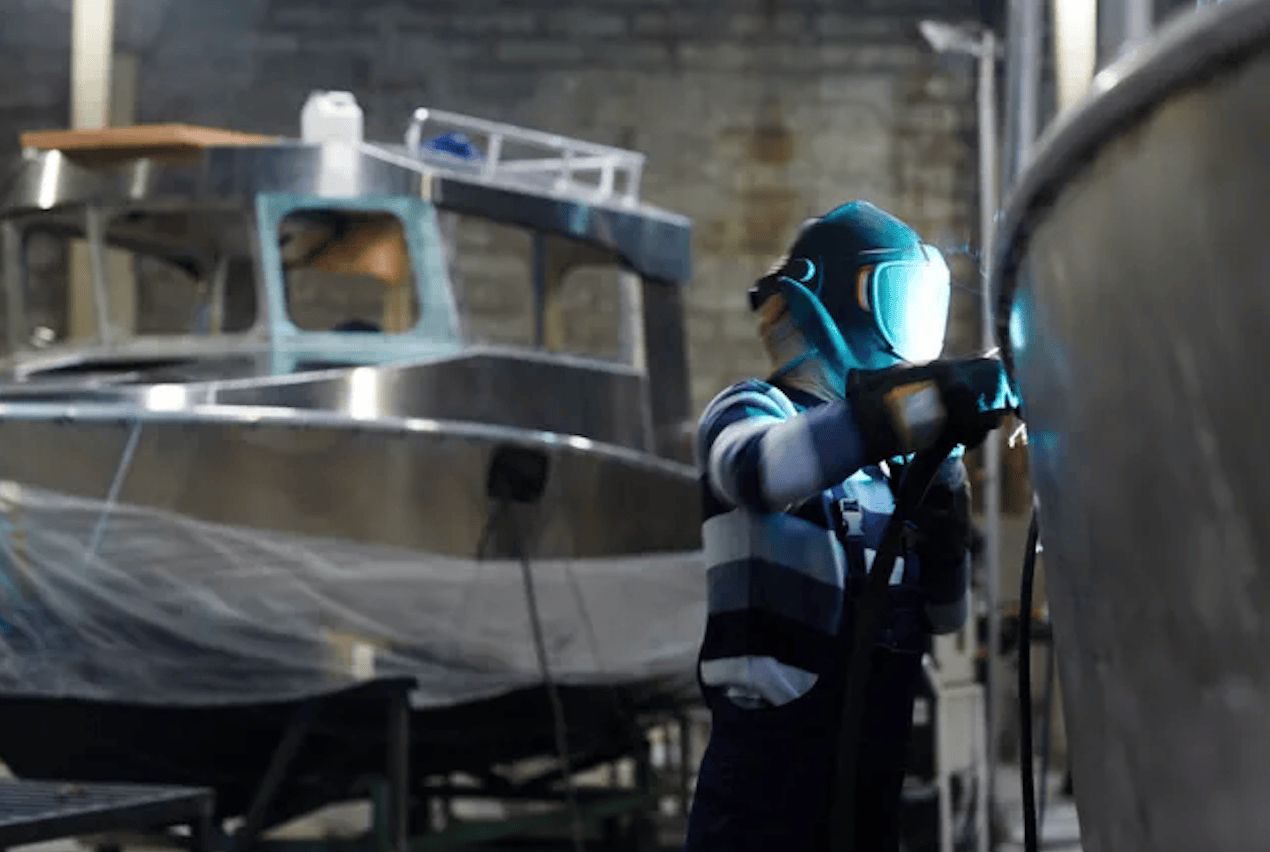
Aluminum welded construction methods. Tampa Welding photo.
Advantages of Fiberglass Boats
Fiberglass boats tend to be heavier than their aluminum counterparts and are often preferred for activities such as waterskiing or wakeboarding, where a more powerful engine is also required. Fiberglass boats revolutionized small boat building in the 1950s and 1960s, reducing or eliminating the need for wood, which reduced cost and typically improved longevity. In the construction of a fiberglass boat, each of the main parts of the vessel is molded as one piece, including the hull, deck, seating areas, and console. In addition, fiberglass boats offer;
- Stability. Fiberglass boats tend to weigh more than aluminum ones, so they are often sturdier, more stable, and usually ride better in choppy seas. Plus their weight makes them less prone to being buffeted by strong winds.
- Easy to Manufacture. Because they’re molded, the options for style and shape of fiberglass boats are wide open, allowing manufacturers to create more complex hull shapes, innovative designs, and to incorporate more features than you might find on an aluminum boat. Examples include livewells, fish boxes, seating areas, and helm stations integrated into the boat.
- Larger Sizes. Because the method of building the hull in a mold is less expensive, manufacturers are able to build larger boats with fiberglass more economically than they with aluminum. The inclusion of cabins for example is more likely on a fiberglass boat.
- Different Colors. The gel coat applied over fiberglass can be applied in virtually any design or color, meaning more custom colors and, as judged by many, a more attractive-looking boat than the aluminum boats. See our guide on How to Paint a Fiberglass Boat to learn more.
- Resistant to Corrosion Unlike aluminum, fiberglass will never suffer from any corrosion and is therefore especially better suited to saltwater environments.

Fiberglass construction methods. Ranger Boats photo.
Aluminum vs Fiberglass for Different Types of Boat
The discussion of aluminum versus fiberglass ultimately comes down to what is best for you and your needs. The traits of each type of material have their pros and cons, but these can be reversed depending on what you want your boat for, what your budget is, and how much time you have for maintenance and repairs. It’s easy to argue that aluminum boats being lightweight is an advantage for trailering, launching, and the need for less power, but the advantages of fiberglass being heavier and typically more stable can also be an advantage.
Your individual needs will ultimately dictate the type of material that is best for your boat, and knowing those advantages will help you make that decision. The type of boat and its function plays a big role in that decision too, of course, and here we’ll look at the advantages of fiberglass and aluminum on specific types of boats. Small fishing and duck hunting boats designed for shallow waters and marshy areas will be better suited to aluminum for example, while an offshore fishing boat will benefit from the added weight and better seakeeping of fiberglass.
Aluminum vs Fiberglass Bass Boat
The highly specified bass boat is used for just one purpose; bass fishing. As such it needs to fulfill specific functions and navigate shallow waters. Check out our guide to the Best Bass Boat Brands to get started. The bulk of the bass boat market is comprised of aluminum bass boats, but at a professional level it’s more common for these to be manufactured from fiberglass.
Aluminum bass boats are:
- Lightweight and easily trailerable: This allows a bass boat to be moved with ease to the fishing grounds and launched single-handedly and quickly. By being lightweight, bass boats can be moved around shallow or marshy fishing grounds. They can also be equipped with smaller engines.
- Durable: Strong and durable are highly prized characteristics for a hardy bass boat, and the inevitable knocks will end up as easily repairable dents rather than cracks as they would in fiberglass.
- Low maintenance. Keen bass fishers want to be out on the water fishing, and not in the marina or yard waxing and polishing their boat, and that’s exactly what aluminum can offer.
- Affordable. Aluminum bass boats tend to be less expensive than fiberglass ones, allowing more people to get out on the water. What can be saved in the base price of the boat could also be added to equip a bass boat with extras such as livewells and tackle stations.
Fiberglass bass boats are:
- High performance: With more weight, fiberglass bass boats can handle larger engines, which is important for getting to fishing grounds quickly in professional settings.

Aluminum bass boat. Xpress Boats photo.
Aluminum vs Fiberglass Bay Boat
While the bass boat is highly specified in its use, the bay boat offers more versatility and is used for fishing in broader environments. However, the bay boat’s shallow draft and wide, flat bottom mean that when it comes to the fiberglass vs aluminum debate the discussion is a trickier one, and you’ll find plenty of both aluminum and fiberglass models.
The construction methods of fiberglass allow for bay boat designs that incorporate molded center consoles, benches, tackle areas, and more features. In contrast, the many aluminum bay boats on the market will be more affordable thanks to their smaller engine size needed to power it across the bay. Ultimately the choice comes down to personal needs. Check out our article on How to Choose the Best Bay For You.
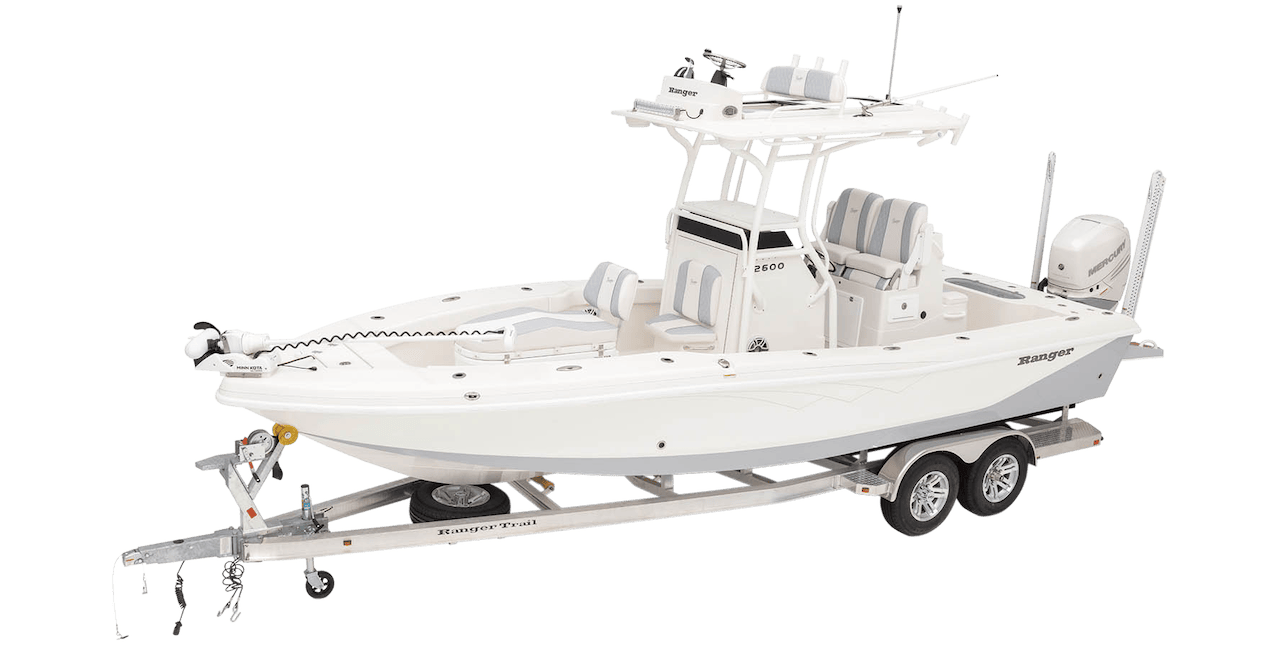
Fiberglass bay boat. Ranger Boats photo.
Aluminum vs Fiberglass Fishing Boat
There are many different types of fishing boat, and so when considering whether aluminum or fiberglass is best, we must first look at the type of boat. We’ve seen the advantages of each type of material above, but how those advantages play out on a specific style of fishing boat varies.
Small Jon boats tend to be made of aluminum for the same reasons as bass and bay boats (see above), while larger center console boats (check out some of the best brands of center consoles here to compare) benefit from the sturdier, heavier properties of fiberglass. So, too, are fiberglass boats generally preferred for saltwater fishing vessels because of their seakeeping qualities in choppier seas thanks to their weight and lack of challenges due to corrosion.
The new breed of fishing pontoon boats tend to follow along with the traditional trend of being built in aluminum as they need to be lightweight and can be powered by smaller engines, whereas sportfishing boats will almost always be built from fiberglass, especially the larger models, as they can support the huge inboards or outboards needed to power them at speed to offshore fishing grounds.
![]()
Aluminum fishing boat. Tracker Boats photo.
Related Articles and Guides
19th Jul 2024
The World’s Best Yacht Brands
12th Jul 2024
Top Performance-Boat Brands, Where There’s Something For Everyone
28th Jun 2024
Best Center Console Boats: The Best Brands Across the Spectrum
23rd Jun 2024


